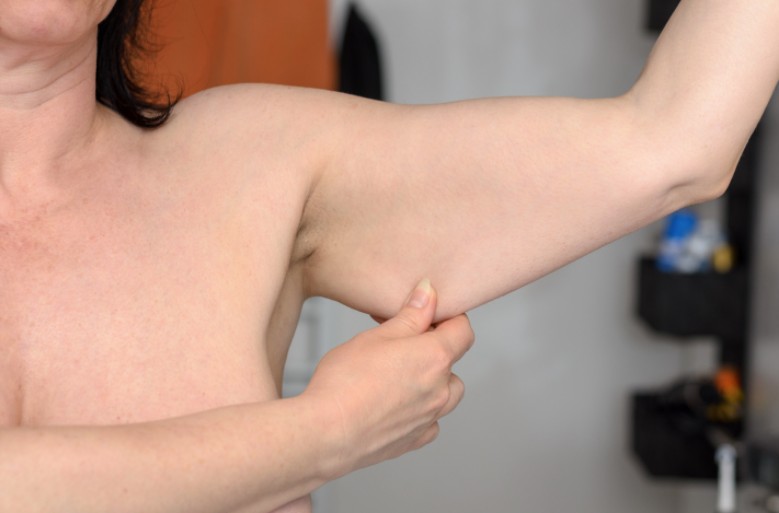Your skin is primarily supported by two layers, the fat layer and the muscle layer. When you gain weight, the skin stretches to accommodate the new deposits of fat. When you lose weight rapidly, the fat cells shrink; but the skin’s surface area remains the same, resulting in sagging or loose skin after weight loss.
Causes of Loose Skin
Loose skin usually comes from dramatic weight loss from pregnancy or obesity. Depending on the age and size of the person, skin stretched taut might take longer time to shift back to its original form. Here are some common causes of loose skin:

Aging
Collagen and elastin is an essential part of keeping skin firm and youthful. As we age, the production of these 2 components reduces and as a direct result, skin becomes “loose” and it starts to sag.

Sun Exposure
Sun exposure can affect your elasticity and collagen production, too, but at a faster rate than aging. Sun damage caused by UVA/UVB radiation can affect your skin’s DNA and mutate it, leading to premature cellular death. This breaks down the collagen and elastin in your skin.

Weight Loss
When you lose large amounts of weight in a short time such as a pregnancy, it can lead to the loss of volume in your skin. This refers to the thinning of the fatty layer beneath your skin and stretching of ligaments. The quicker you lose this volume, the less amount of time you give your skin to recover, leading to sagging loose skin.

Smoking
The nicotine in cigarettes can narrow the blood vessels in the outermost layers of your skin. Due to this, the blood flow in your skin is disrupted which can lead to less oxygen and nutrients to your skin cells. Without the natural nutrients, your skin cells die (similar to sun exposure), reducing the production of collagen and elastin in your body.
